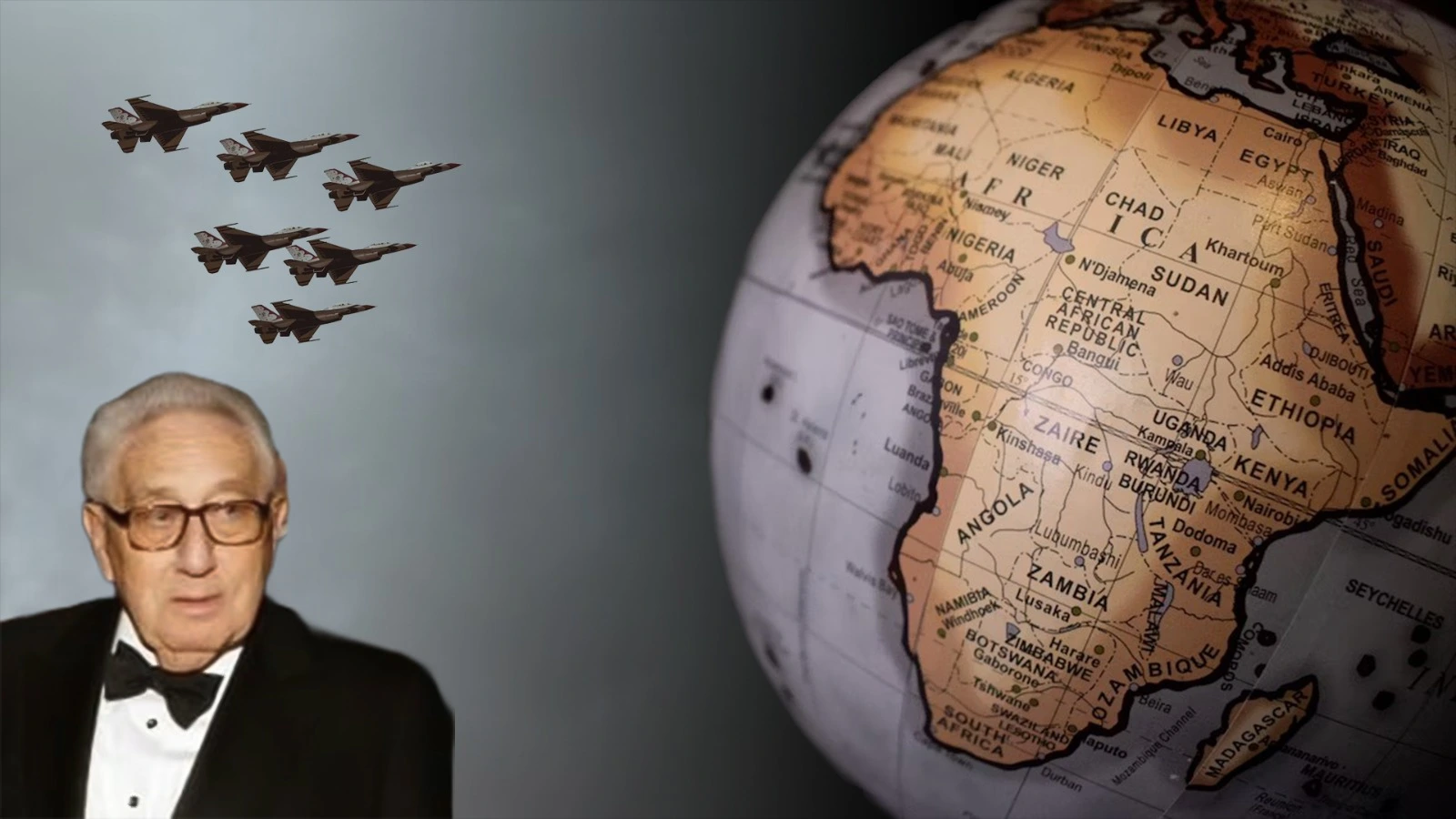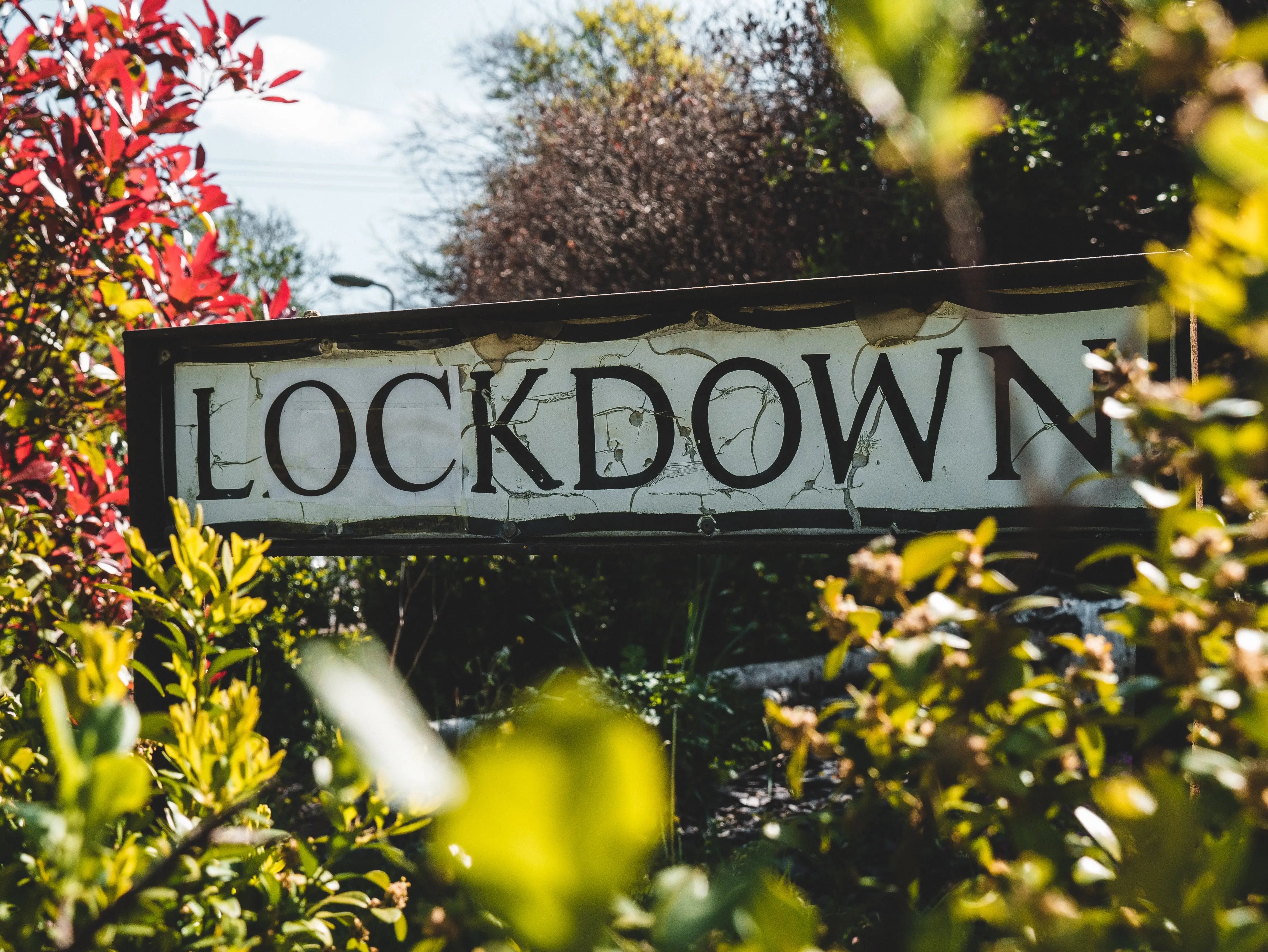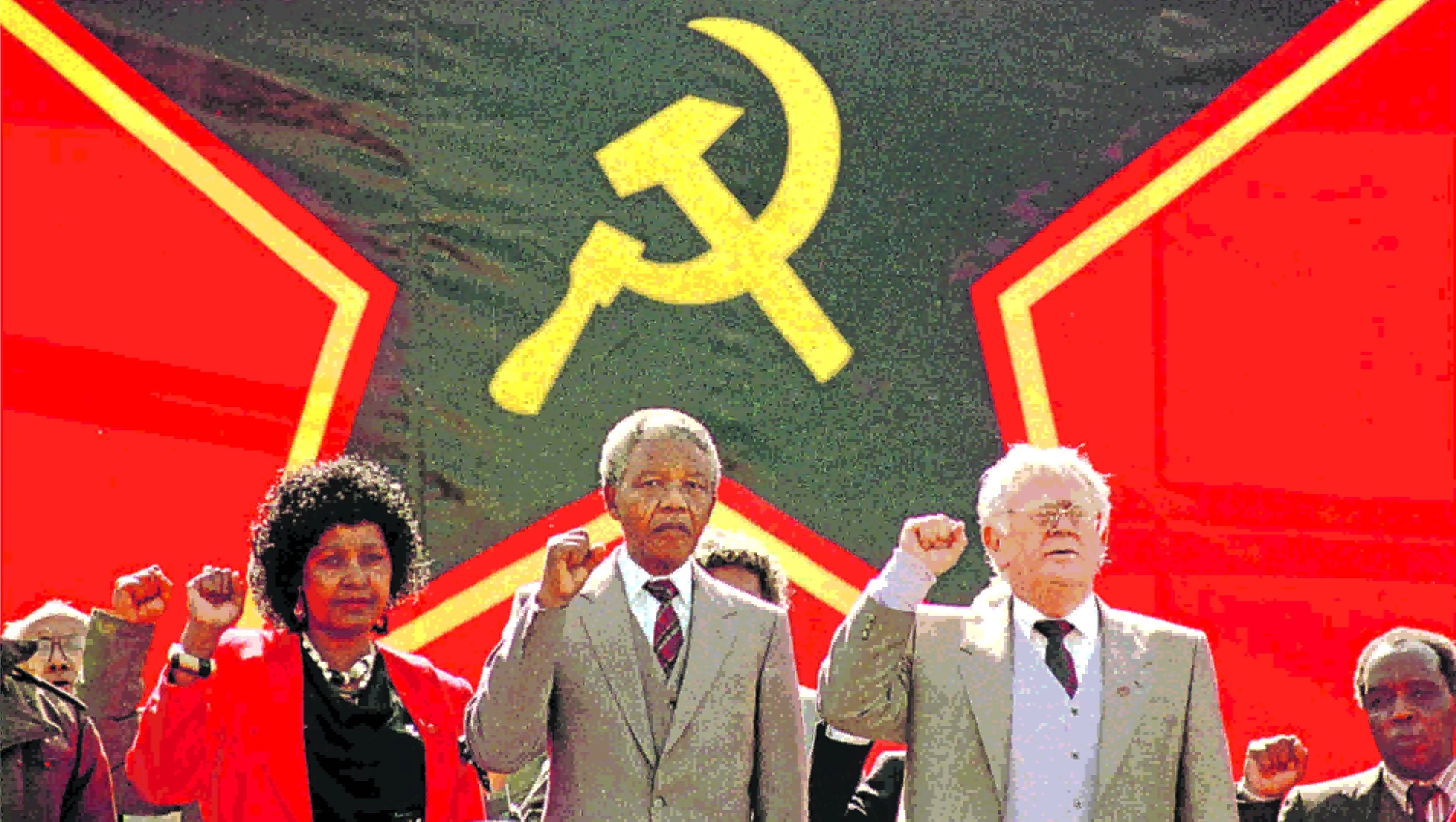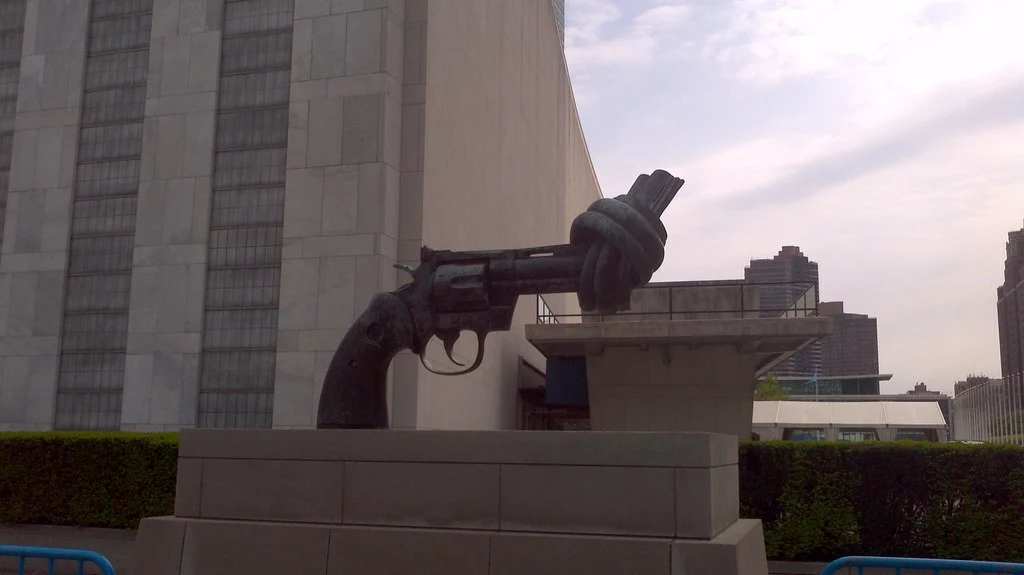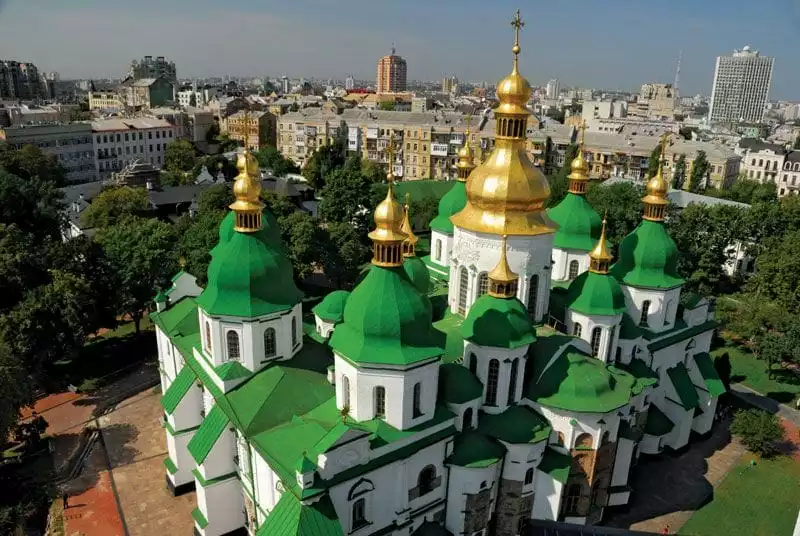The Context
From 1945 until now, 2023, the USA has dominated the whole world and has been at the centre of world monopoly capitalism and imperialism. The devastation of the Second World War led to the decline of the domination of the old colonial powers, Britain and France. The imperial hopes for Germany and Japan, countries which had been powerful up to the Second World War had been crushed by the allied victory.
As a result of the Second World War, socialism which had been established in the USSR on the territory of the former Russian Empire during the First World War expanded the territory in which the socialist economic system was being constructed. This was as a result of the victory of the Red Army in Eastern Europe and of the victory of People’s Liberation Army in China in 1949. Socialism was growing but the Soviet Union had suffered massively during the Second World War and the countries which came under the control of communist and workers’ parties in Eastern Europe were poor in comparison to Western Europe and the USA; China was even poorer.
With the old colonial powers in subservient alliance with US imperialism, Communism and national liberation became seen as a rival and the main enemy of the USA and its allies. By 1991 the imperialists had succeeded in procuring counter-revolution in Eastern Europe and the USSR: US Professor Francis Fukuyama jubilantly proclaimed “The End of History” ⸺ and the final triumph of liberal democracy.
But capitalism, in its neoliberal form, which has become established worldwide following the election of Ronald Reagan as US President in 1981 is not sustainable. Its essential feature is the domination of the banking sector over the productive sector and the belief that money is more important than production. In the short term, fortunes of an unprecedented size were made through the buying and selling of money ⸺ this trend was accelerated through the computer revolution and the internet which allowed rapid transfer of money from country to country. The international casino economy was established.
Those countries which have rejected the neoliberal agenda and concentrated on production are now in the ascendancy, led by the People’s Republic of China. The counter-revolution in the USSR was not as complete as the imperialists had hoped and their ill-conceived war against Russia has pushed it closer towards a partial reconstruction of the Soviet system, away from US-centred globalisation ⸺ and closer to China. These two countries, China and Russia are at the centre of BRICS and are rapidly being joined by most of the rest of the world. By the end of this year, 2023, the US dollar will be in major crisis as US imperialist domination of the world, both military and financial, becomes little more than a memory recorded in history text books.
Henry Kissinger
During this period, of increasing US ascendancy, Henry Kissinger was Security Advisor to the President from 1969 to 1975 (a post created by Harry S. Truman during the Cold War) and Secretary of State (Foreign Minister) from 1973 until 1977. This was under Presidents Nixon and Ford. Kissinger is a brilliant and brutal man, utterly ruthless and is directly responsible for many thousands of deaths in Cambodia and Chile and indirectly responsible for several times more.
According to a report made by Deputy Defense Secretary William P. Clements to the Senate Armed Services Committee, the National Security Council (NSC) headed by Henry A. Kissinger approved each of the 3,875 Cambodian bombing raids in 1969 and 1970 as well as the methods for keeping them out of the newspapers. 540,000 tons of bombs were dropped killing not less than 150,000 people.
In 1970, Socialist Party leader Salvador Allende was elected President of Chile. Immediately, Kissinger advised President Nixon to “make the economy scream” and in 1973 with considerable US guidance, General Pinochet staged a military coup. More than 3.000 people disappeared never to be seen again and more than 80, 000 were arrested and tortured. Under Pinochet, for the first time the ‘Chicago boys’, neoliberal economists who were followers of Milton Friedman became advisors to the government. Chile was the testing ground for economic policies to be introduced in Britain in 1979, the USA in 1981 and thereafter thrust down the throats of the rest of the world, in particular Africa.
1n 1971, Kissinger and Richard Nixon supported Pakistan’s vicious campaign against East Pakistan, which in the same year broke away to become Bangladesh. Pakistan made bitter attempts to prevent this by killing around 1 million Bengalis, with a further 10 million refugees fleeing to India. Kissinger is on record as sneering at Americans who “bleed for the dying Bengalis,” adding “we can’t let a friend of ours and China get screwed in a conflict with a friend of Russia’s”
Kissinger was notoriously anti-Communist and anti-Soviet, however he helped Nixon make an agreement with the USSR on arms limitation. Nixon had been concerned about defence spending. Soviet leader Leonid Brezhnev was only too happy to agree. The Strategic Arms Limitation Treaty (SALT I) was signed in 1972 with the help of Kissinger. SALT II was made in 1979 but not signed due to the war in Afghanistan in which Soviet forces were assisting the government of Afghanistan against US-backed Islamic insurgents.
Also in 1972, Kissinger was responsible, from the US side, to recognise the government of the People’s Republic of China as the legitimate government of that country; until then Taiwan under the name ‘Republic of China’ had held the Chinese seat on the Security Council of the United Nations. Kissinger used this recognition of the People’s Republic of China to strengthen the Sino-Soviet split and create an anti-Soviet alliance between the USA and China. This was to have a negative impact on the African liberation movement.
Some recent US commentators, in particular John Mearsheimer, have noted that the NATO War Against Russia and continuing threats against China, have destroyed US penetration into the Russian economy and further, the reckless actions of the US Deep State have pushed Russia and China together in a powerful defensive alliance now being joined by other countries representing the majority of the world’s population and of world productive capacity. The bitterness felt by Africans towards US bullying and proxy wars is now reflecting in growing support for BRICS and rejection of hegemony by the ‘International Community’ ⸺ which does not include the world’s most populous countries!
It should be noted too, that despite the fact that in standard Marxist-Leninist thinking the state represents the interests of a specific class, that in some cases, the state apparatus can assumes a character independent of the class it is supposed to represent and becomes guided by idealistic ideological principles and militarist thinking. Scientific Socialists need to revisit and refine their theory of the state in accordance with concrete experience.
Kissinger in Africa
In 1967, Israel grabbed the whole of the Sinai Peninsula plus the Gaza Strip from Egypt in the Six-Day War. This made the Suez Canal, an important source of revenue for Egypt non-functional; it served merely as a border between Egypt and land occupied by the State of Israel.
Militant nationalist and Pan-Africanist President Gamal Abdel Nasser died in 1970 and was replaced by Anwar Sadat, a man much more compliant to the needs of the USA. Nevertheless, in 1973, Sadat ordered his troops across the Canal in what was known as the Yom Kippur War.
As a result of this military action, Kissinger promoted a peace process between Egypt and Israel, both of them allies of the USA. The Sinai was returned to Egypt, but the densely populated Palestinian territory of Gaza was placed under Israeli control. From 1948 to 1967, Gaza had been administered by Egypt. Sadat was assassinated in 1981 by nationalists opposed to his agreement with Israel.
In 1974, a progressive military coup in Portugal abruptly ended the colonial wars in the Portuguese colonies in Africa, most importantly in the substantial territories of Mozambique and Angola. The Portuguese coup leaders were generally friendly to the liberation movements and any negotiations were purely around the logistics of the pull-out and the date of the proclamation of Independence.
In Mozambique there was FRELIMO the Front for the Liberation of Mozambique led by Samora Machel and in Angola the MPLA the People’s Movement for the Liberation of Angola led by Agostinho Neto. Angola is far richer in minerals than Mozambique and at that time, MPLA was more definitely pro-Soviet. Machel, although receiving assistance from the USSR was also receiving assistance from China and was influenced by Julius Nyerere of Tanzania with his African Socialist ‘Ujamaa’ ideas.
It should be noted that the two major colonial powers in Africa, France and Britain, following the war in Algeria and the uprising of the Land and Freedom Army (Mau Mau) in Kenya, by the late 1950s had both adopted the neo-colonial agenda. That is African countries were rapidly given formal independence while the colonial power retained control of the economy. African leaders who did not agree to this were removed and frequently murdered.
The neo-colonial agenda did not, at first, encompass the whole of Africa. Fascist Portugal had no intention of giving any African even a semblance of power and ended up with colonial wars on a very big scale, Angola alone is several times bigger than Portugal. Further south, the well-established white-racist settler governments of South Africa and Rhodesia had no intention of passing on political power to Africans, although the wiser supporters of imperialism had seen that settler rule was doomed to fall; but it was also necessary, from their point of view, to prevent Communists or those with any concept of creating economies outside of their control from gaining power.
The coup in Portugal in 1974 led to the Portuguese colonies gaining independence in 1975, but this coincided with other events. The US withdrawal from Vietnam in 1974 led to the Vietnamese liberation forces taking Saigon in 1975 against the feeble resistance of what was left of the the South Vietnamese puppet government. The other event was the resignation of Republican President Richard Nixon in 1974 due to the Watergate scandal. He had illegally had offices of the Democratic Party bugged. Kissinger remained as Secretary of State after Nixon’s resignation and the inexperienced and not-too-bright Gerald Ford who had only been Vice-President for one year suddenly found himself in the role of President. Henry Kissinger was now fully in charge of US foreign policy.
Still angry over the defeat of the USA in Vietnam, Kissinger turned his wrath on Angola against the advice of the CIA which reported that the MPLA was more likely to form an effective government in Angola than the pro-Western movements. Other than MPLA, there existed in Angola the National Liberation Front of Angola (FNLA) led by Holden Roberto, brother-in-law of Mobutu Sese Seko. President of Zaire (now Democratic Republic of Congo) and more effectively, UNITA, the National Union for the Total Independence of Angola led by the more charismatic Jonas Savimbi.
Kissinger decided that the USA should save face after the defeat in Vietnam by giving extensive financial support for both FNLA and UNITA but eventually settling for UNITA. Millions of dollars were poured into a war which essentially was to last until 2002 when Savimbi was killed.
We must recognise too that China at this juncture supported the same liberation movements in southern Africa as the USA in its bid to oppose the leadership of the world revolutionary movement by the Soviet Union; this at first included UNITA, but by 1983, China recognised the MPLA government and began to work with it, subsequently assisting in rebuilding the Angolan economy.

Angola was destroyed by the prolonged war and at least 1 million of its people perished, but is now developing. However around 1,100 known minefields remain in the country with hundreds of thousands of unexploded mines and other munitions. Seeing people with one foot because of these small cheap land-mines manufacture by the USA and laid by UNITA is common in Angola.
Writing in the journal American Diplomacy in 2010, former Assistant Secretary of State for African Affairs, Donald Easum, who served under Henry Kissinger during the Nixon administration, reported that Kissinger “routinely rebuffed and neglected” African ambassadors and representatives at the UN. Easum goes on to say:
“He was determined to seize in Angola what he considered a timely opportunity to display America’s (and Henry Kissinger’s) strength.
“He believed that defeating the MPLA, which he considered pro-Soviet, could expunge the image of a flabby United States in retreat after Vietnam. Moreover, he thought he could do it on the cheap with clandestine CIA collaboration. He was soon to be proved dead wrong.”
What is interesting is that in 1976, Kissinger convinced Ian Smith in Rhodesia that he should accept majority rule. Smith reports bitterly on Kissinger in his book The Great Betrayal. Kissinger made it clear that unlike the Afrikaners in South Africa, the Rhodesians were recent immigrants. Kissinger seemed to believe that Rhodesia was expendable and he had the backing of South African President John Vorster on this. Vorster threatened to withdraw South African support for Rhodesia if Smith did not co-operate.
The curious issue here is that the main liberation movement in Rhodesia at that time was the Zimbabwe African People’s Union (ZAPU) led by Joshua Nkomo with its army, the Zimbabwe People’s Revolutionary Army (ZPRA) trained by the Soviet Union and in close alliance with the African National Congress (ANC) of South Africa and its armed wing uMkhonto we Sizwe (MK).
In this situation, why would Kissinger want Smith to make way for majority rule?
The Western and Chinese backed liberation movement, the Zimbabwe African National Union (ZANU) and its armed wing the Zimbabwe African National Liberation Army (ZANLA) were making headway. The USA and Kissinger in particular must have had confidence that ZAPU would not win.
The background is complex and interesting. In 1957, the nearly defunct Southern Rhodesian African National Congress (SRANC) was revived by militant workers who chose the President of the biggest Union, the Railway African Workers’ Union to lead them. The SRANC was banned and they formed the National Democratic Party (NDP), the NDP was banned and ZAPU was formed in December 1961.
As far back as 1959, the first batch of recruits was sent to Ghana for training in the armed struggle then in 1962, Nkomo made an agreement with the Soviet Union for arms and training. The following year, while some went for training, others broke away and formed ZANU.
At the core of that group were members of the Capricorn Africa Society (CAS) founded in 1949 by David Stirling, also founder of the Special Air Service (SAS) the special forces of the British army. The mission of the CAS was to train young Africans to serve the interests of British monopoly capital. Among other things Stirling was a mercenary leader after the Second World War and ran a blacklist against trade unionists. One of the founders of ZANU was Leopold Takawira a full time employee of CAS, another being British-trained lawyer Herbert Chitepo. When ZANU broke away, Takawira said “We cannot be led by this huge Ndebele man.” The Shona are the largest ethnic group in Zimbabwe and the Ndebele the second largest, each with a variety of sub-groups. Ethnicity had never been an important issue in the liberation movement before 1963, but ZANU, guided by British intelligence, made it an issue.
ZANLA was to receive some military training from China, but the real break came when in 1972 ZANLA was given a base in Tete Province liberated by FRELIMO from the Portuguese. President Samora Machel of Mozambique, although armed by the Soviets, had been influenced by Tanzanian President Julius Nyerere who was very anti-Soviet and had imprisoned A.M. Babu, the only Communist in his Cabinet in 1972. The bases should have gone to ZPRA, but at that time there were internal quarrels which delayed ZPRA at a time when Nkomo was in detention. It is known, that given the delay that Nyerere influenced Machel to give the Mozambican base to ZANLA.
Once Mozambique obtained independence in 1975, the whole of the Mozambican border area was available to ZANLA. The Mozambican border is Zimbabwe’s longest border. There are mountains and forests along much of it suitable for guerrilla warfare. It is more densely populated than the Ndebele-speaking western side and by mainly Shona-speaking people. ZAPU remained the majority party until at least the mid-1970s, but the acquisition of bases in Mozambique by ZANLA was a major factor in ZANU rather than Soviet-backed ZAPU becoming the ruling party in an independent Zimbabwe.
We do not have direct evidence of US interference in the Zimbabwe liberation struggle at the time of Kissinger, but the circumstantial evidence is very strong. Certainly the hand of Henry Kissinger can be seen in the events which led to the Independence of Zimbabwe on 18th April 1980 under the rule of ZANU(PF) and Robert Mugabe.
The well-trained ZPRA army had been planning to invade from Zambia in late 1979 or early 1980 and to take the capital, Salisbury (now Harare) in 4 days, ZPRA was equipped with Soviet tanks and aeroplanes. Zambian President Kenneth Kaunda, afraid of all-out war starting from his country informed Margaret Thatcher who immediately called for the Lancaster House talks which were to lead to Zimbabwe Independence. Trying to avoid bloodshed and against the advice of both ZPRA and his Soviet advisors, Joshua Nkomo agreed.
ZANU and ZAPU agreed to bury their differences and stand as the Patriotic Front at the coming Independence election and during the Lancaster House talks, popular ZANLA Commander Josiah Tongogara was open about supporting Joshua Nkomo as the first Prime Minister of an independent Zimbabwe. When he went to Mozambique in December 1979 to visit his troops, he died in a ‘road accident’. At the election, supervised by the British army, ZANU(PF) stood alone and ZAPU using the agreed name PF stood alone. ZANU(PF) won even in areas such as Mashonaland West known to be staunchly ZAPU. The appearance of ZAPU as a purely Ndebele party seemed to be confirmed by the election results announced by the British; but ote counting was carried out by the British army without any scrutiny from political parties.
What was behind this result was exposed by US diplomat Andrew Young former US Ambassador to the United Nations and a supporter of ZANU in an essay called The United States and Africa: Victory for Diplomacy (1980):
“Despite widespread doubts outside Zimbabwe about the strength of Mugabe’s political constituency, he had achieved a solid electoral victory over both Bishop Abel Muzorewa, on whom both Britain and South Africa had placed their hopes, and Joshua Nkomo, who enjoyed military support from the Soviet bloc. The unexpected size of his majority gave Mugabe an unequivocal mandate which greatly simplified the task of the British in handing over power.
“The Zimbabwe settlement must also be recorded as a victory of the Western alliance in cooperation with the Organization of African Unity (OAU). It signalled a renewal of the cooperation in de-colonization which came under Western leadership and via the United Nations during the 1950s and 1960s. And it curtailed at least temporarily the trend toward growing dependence on Soviet military aid to bring about African liberation.”
Hilary Clinton, Disciple of Henry Kissinger
“I was very flattered when Henry Kissinger said I ran the State Department better than anybody had run it in a long time.”
These words were reportedly uttered by Hilary Clinton in 2016, she had been Secretary of State from 2009 to 2013. She had referred to Henry Kissinger as a friend wrote that he “checked in with me regularly, sharing astute observations about foreign leaders and sending me written reports on his travels.”
Together with French President Nicolas Sarkozy, British Prime Minister David Cameron and US President Barack Obama, Hilary Rodham Clinton, protégée of Henry Kissinger bears the responsibility for destroying Libya, Africa’s most prosperous country at the time, preventing the launch of the Gold Dinar as an all-African country, destroying the Great Man-Made River Project in the process of greening the Libyan desert, promoting genocide against black Libyans and reintroducing the slave trade.
Hilary Clinton’s remarks following the foul murder of Africa’s great leader Muammar Gaddafi were:
“We came. We saw. He died.”
The West is now surprised that so many African leaders are turning against them and turning towards China, Russia and BRICS. Politically conscious Africans are now following daily the progress of Russian forces in the liberation war against NATO and Nazi Ukraine. Our history is too painful for us to want anything but military victory by Russia, and the collapse of the US dollar.
Henry Kissinger played an important role in making us think like this.
Editor's Note:
The views and informations expressed in the article are solely those of the author and may or may not reflect the views of The International. We believe in providing a platform for a range of viewpoints from the left.
"The International" belongs to you.✕
Please take a moment to read this. We apologize for any interruption, we want you to know "The International" seeks your valued support at this time. We've proudly served as a pioneering online platform, delivering ad-free media content. With only 2% of our readers opting for a subscription, any contribution you choose holds immense significance—whether it's an annual fee of $25 or a monthly payment of $2.5. — The "The International" Team, committed to providing you with enlightening perspectives. We want to highlight that this sum is even less than what you'd spend on a cup of coffee, yet it greatly aids in sustaining our efforts to perpetuate and enhance your esteemed initiative.
